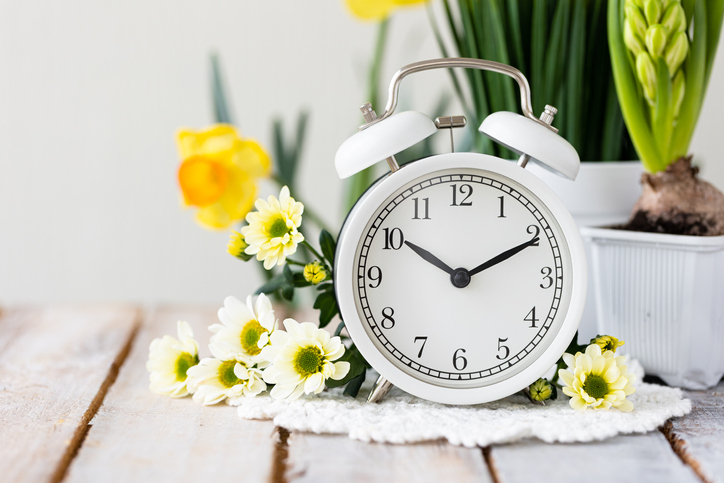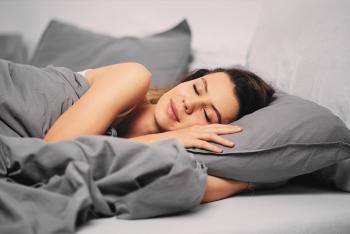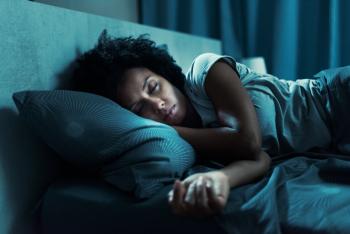Hurkle-durkle refers to the cozy, mindful act of unwinding before bed, focusing on relaxation and...
Read MoreYellow Status: Due to the positivity rates of respiratory viruses in the area, masks are required for staff and strongly encouraged for patients and visitors in high-risk clinical areas at Inspira Health facilities as of 1/8/25.


The beginning of daylight saving time is just around the corner. On the second Sunday in March, our clocks will move forward one hour at 2 a.m., and we’ll lose an hour of sleep. However, one less hour of sleep at night can disrupt your circadian rhythm. Here’s what you need to know about getting ready for daylight saving time.
“Circadian rhythms are naturally-occurring changes in the body that follow a 24-hour cycle,” said John Keeley, Clinical Education Specialist at Inspira Sleep Center. “They cause us to have sleepy and wakeful periods throughout the day and night.” When daylight saving time occurs, our internal clocks can become out of sync with the day-night cycle.
When your internal clock gets thrown off, you may experience a lack of concentration, reduced productivity, memory issues, mood disturbances, lower performance in physical activities, fatigue and daytime sleepiness. Fortunately, there are things you can do to help protect your circadian rhythm.
“Since daylight saving time happens at the same time every year, there are ways to prepare for it in advance,” said Keeley. “Taking practical steps can minimize the effects of daylight saving time, preventing the loss of sleep from affecting your overall health.”
According to the American Academy of Sleep Medicine, you can prepare to “spring forward” by gradually shifting your sleep schedule the week beforehand. By getting to bed 15 to 20 minutes earlier each night, you can give yourself time to acclimate to the time change.
Another way to prepare for daylight saving time is by ensuring you get enough quality sleep in the nights leading up to the time change. If you’re already sleep-deprived, you’re more likely to experience adverse health effects when you lose an additional hour.
After daylight saving time, you can help your circadian rhythm readjust by spending time outside during the day. Natural light, even on overcast days, has a powerful effect on the circadian rhythm and can help your internal clock align with the time change.
You can also make the most of daylight saving time by adjusting your watch and household clocks the night before. Doing so ensures you avoid any timing mishaps the following day. Make sure to update the time on your cell phone and other electronic devices if they don’t update automatically.
“Daylight saving time is a great reminder that quality sleep is essential to your health and well-being,” said Keeley. “It’s also an excellent time to address any ongoing sleep issues with your doctor.”
You can improve your sleep hygiene by:
Inspira Health is a high reliability organization (HRO), which means safety is the top priority for patients and staff. To make an appointment, call 1-800-INSPIRA.

Hurkle-durkle refers to the cozy, mindful act of unwinding before bed, focusing on relaxation and...
Read More
How does your sleep position affect your health? Here are considerations for maximizing your sleep...
Read More
Catching Zs is essential for a happy, healthy lifestyle, but many of us have experienced sleep...
Read More
The material set forth in this site in no way seeks to diagnose or treat illness or to serve as a substitute for professional medical care. Please speak with your health care provider if you have a health concern or if you are considering adopting any exercise program or dietary guidelines. For permission to reprint any portion of this website or to be removed from a notification list, please contact us at (856) 537-6772